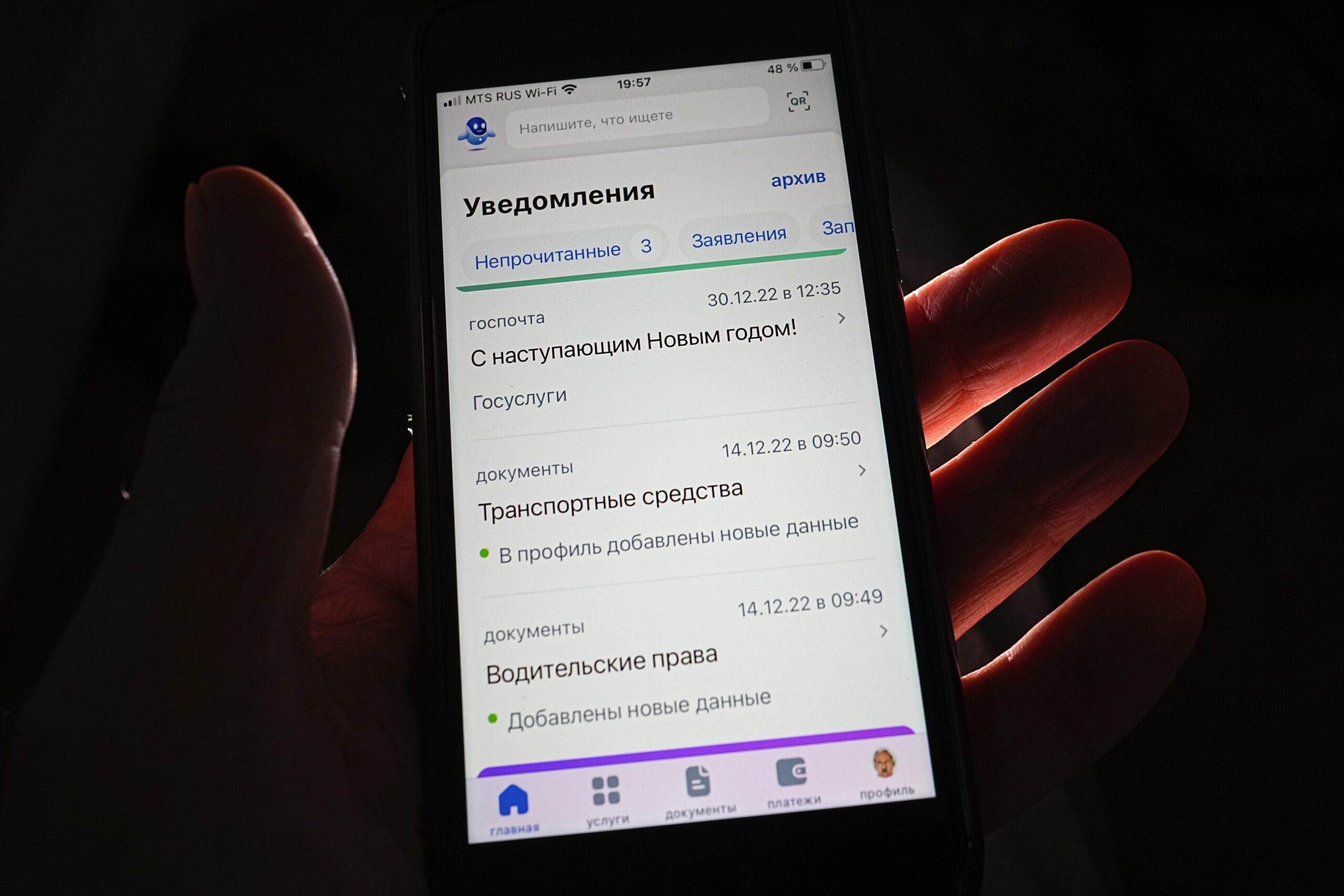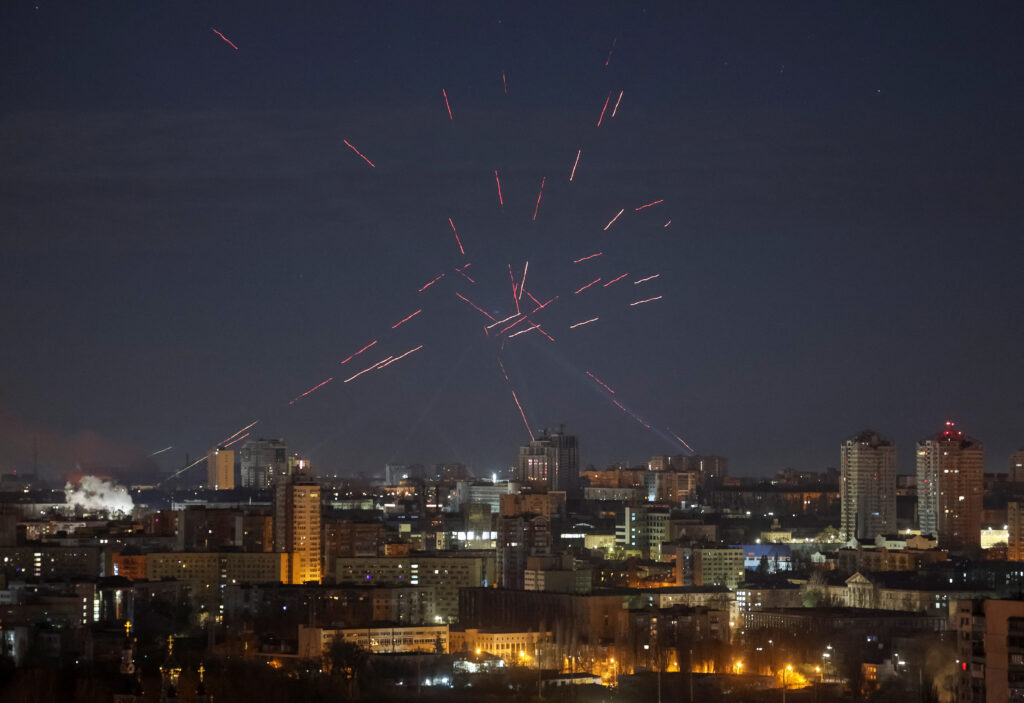Convenient electronic services, primarily Gosuslugi, have long been the pride of the Russian state. Citizens themselves also liked them. They’ve helped saving time — doing everything online — no need to knock on the doors of departments and institutions, receiving the necessary documents, or at least ordering them from your own sofa. With the help of an account on «Gosuslugi» you can pay taxes, make an appointment with a doctor, pay a fine, enroll your child in a school or kindergarten. The offline continuation of this system was the «My Documents» centers, where documents could be obtained physically, and the elderly could use the help of the center’s employees. This system was a real digital paradise for those who remembered the Soviet and post-Soviet bureaucracy or encountered bureaucracy in other countries.
The development of the Gosuslugi portal began during the presidency of Dmitry Medvedev, who at that time tried to appear a modern and liberal politician. He met with US President Barack Obama, used an iPhone and proclaimed a simple and understandable slogan: «Freedom is better than lack of freedom.» Gosuslugi was, to some extent, Russia’s iPhone, a product that helped make life easier for millions of people. And most importantly, the portal has become a rare example of how citizens trusted the state. «Gosuslugi» have become popular, despite the fact that Russians are very much afraid for their personal data and its leaks. Millions of people, overcoming fear, trusted the state and did not regret it for a very long time.
Of course, the country’s leadership received its benefits from the «digitization» of Russian citizens. In the hands of the Kremlin and the government was a valuable array of big data: places of residence, dates of birth, and information about their life and habits (for example, medical visits). Officials had the email addresses and telephone numbers of millions of users of the Gosuslugi, and the mailing list of the portal was actively working. For example, not so long ago, through the mailing list of the portal, Roskomnadzor tried to convince Russians that Instagram was legally blocked, and ordinary citizens only benefit from this blocking. «Since Russia is a country that has its own competitive Internet platforms, including the social networks VK and Odnoklassniki, with coverage of tens of millions of users, we hope that your transition to these platforms will happen quickly, and in the future you will discover new opportunities (for) communication and doing business,» Roskomnadzor urged in the Gosuslugi mailing list.
In a sense, this portal could be called a «soft power» tool, with which the state influenced its own citizens. So the state could reach out to people who, on the whole, are loyal and far from revolutionary views, but who do not trust propaganda and, out of principle, do not watch TV. Such citizens are not ready to listen to the cries of the leading propaganda talk shows, but when a portal contacts you, which allows you to save a lot of time, why not listen to it. It can be said that Gosuslugi was trusted in this sense: this interface of the government, although it was not a human face, was perceived quite well.
It is difficult to say whether the Kremlin appreciated these advantages. About 5−7 years ago, it seemed that the state was developing this site as «art for art’s sake» and, perhaps, as one of the means of communication with society. The state somehow did not notice a basis for manipulating society, although some possibilities were obvious. If a person can get a passport with the help of Gosuslugi and is not afraid to do it, why not try to convince him to vote through the portal? And it is much easier to influence the voting results electronically than to do it offline.
In the late 2010s the capabilities of Gosuslugi were understood by the Moscow mayor’s office, which developed its own website Mos.ru. The city administration tested the possibility of «voting» on minor topics using the «Active Citizen» polling system. Then, with the help of Grazhdanin, the state began to hold public hearings, in which citizens from other cities also voted. Not surprisingly, their results were most often in favor of the mayor’s office. Finally, in Moscow, for the first time, electronic voting began to be widely used in the plebiscite on constitutional amendments and in the elections to the State Duma in 2021. There were doubts about the purity of the technology, and they turned out to be justified. If at the plebiscite the results were similar to the truth, then during the parliamentary campaign the manipulations were obvious. In most of the Moscow single-member constituencies, according to data from offline polling stations, the opposition won, but after summing up the results with data from online, ruling United Russia won everywhere. Confidence in electronic voting among the opposition was completely undermined, but the results of the elections did not cause widespread protests even in Moscow. All the more, there was no talk of undermining the trust in the «Gosuslugi». The political bloc of the Presidential Administration clearly has plans to use e-voting in the upcoming presidential elections in 2024: in Moscow and the regions, they are reducing the number of offline polling stations.
On April 11, 2023, the image of a digital paradise at Gosuslugi was finally destroyed. Deputies of the State Duma, obviously at the suggestion of the military/security bloc, adopted amendments to the legislation, according to which a summons to the army (whether it be military service or mobilization) sent through the Gosuslugi will automatically be considered handed over. If a citizen does not have an account on the portal, then the summons will go to the register, which can be found in «My Documents» and after seven days it will also be considered handed. The comfortable and habitable space of the «Gosuslug» and the multifunctional public service centers are becoming a dangerous space, from which it is better to stay away. Despite how deleting an account on the portal will not save a person from «being delivered» a summons after seven days by default, many Russians will prefer to block at least one channel through which they can be drafted into the army. Partial tranquility is more valuable than convenience, and citizens understand this. To illustrate, let’s give a reverse example — some people do not trust «Gosuslugi» due to the fact that their personal data can be made public. They ignore convenience and waste their time getting documents offline in exchange for peace of mind. Citizens who were previously loyal to Gosuslugi will now act in exactly the same way as it has become dangerous.
The ruins of a digital paradise have become a digital hell or a digital GULAG. Evangelists of the «human interface» will turn into new Old Believers who fled to the forests from the eye of the state. Such forests in the new conditions can become the offline. As a rule, city dwellers, who are well-to-do and who know how to use the Internet, communicated with the state through Gosuslugi. The state is cutting off communication with them for a long time. The Russian state actually announced to its people: «Public services are our platform, which we use in our interests, and not a place for meeting and dialogue with you.» If a summons to the army can come to your personal account, then they can also send a subscription for a loan in favor of the war, which by default will be considered activated. Failed to pay the loan — a fine. Comfortable. Only now for the state, and not for the citizens.
Those who were thinking of entrusting their vote to the portal in the next presidential elections will most likely now think about whether it is worth doing it. The frankly fabricated percentage of the e-voting will negatively affect the perception of the results even by citizens who are quite loyal to the state. Of course, it is impossible to accurately predict the protests following the results of the vote in 2024 but history shows that distrust of the results of the vote can become a trigger for mass protests — this was exactly the case in 2011. The destruction of trust in Gosuslugi and the habit of using the portal will definitely not add credibility to the upcoming presidential campaign. But the siloviki bloc and even Vladimir Putin no longer need external legitimacy — the regime is becoming quite comfortable considering repression and fear as its base, rather than grassroots support. The destruction of trust in the popular portal Gosuslugi is more evidence of this.










